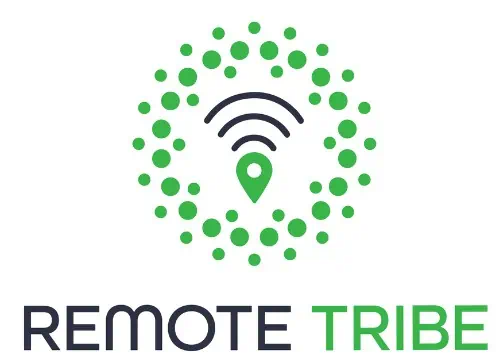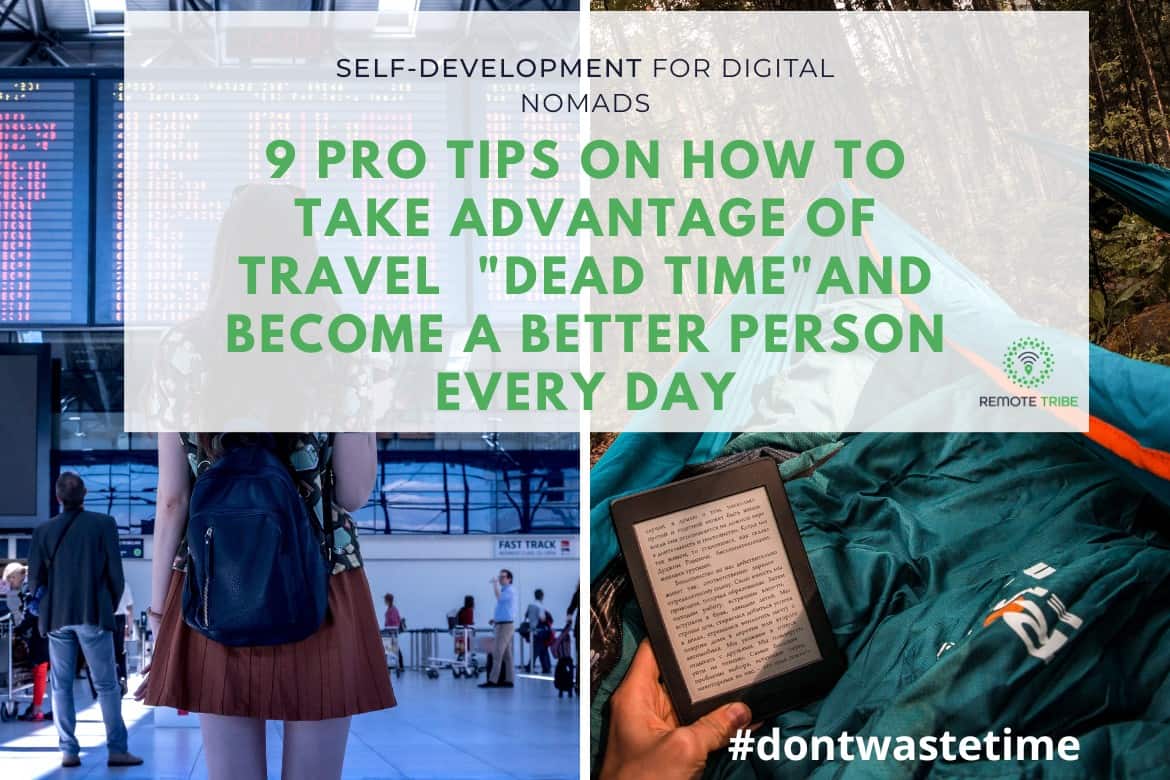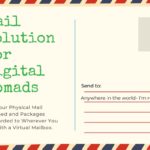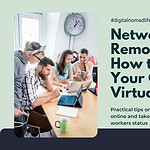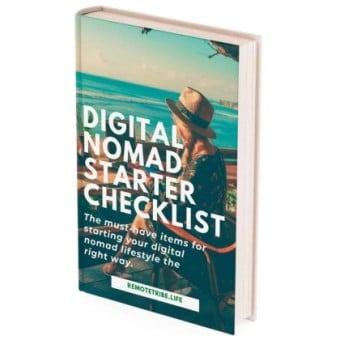Travel "Dead time" and how to deal with it when on the road
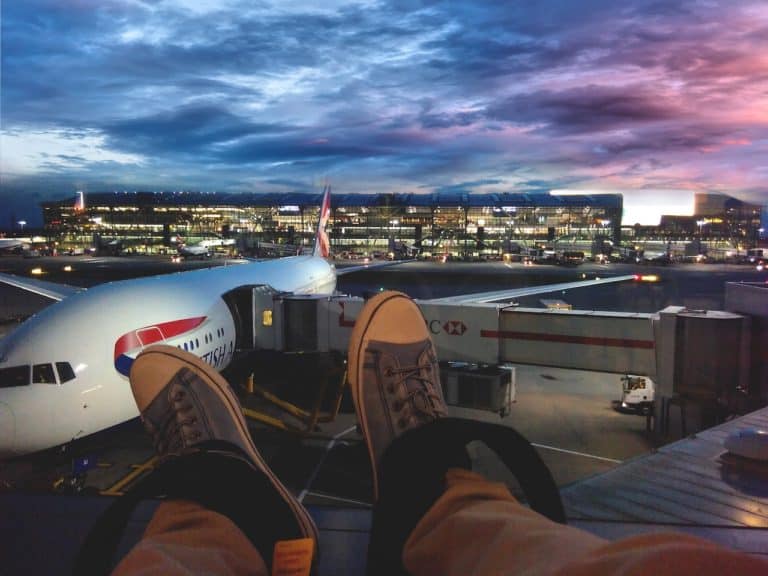
Goes without saying that as digital nomads we waste a lot of time on travel either by plane, boat, car, and even motorbike.
Moving from one place to another is a big part of our lives as adventurers and it’s something we embrace because it’s part of our identity and even these things make us happy.
But you don’t have to waste this time if you play it smart and have the right mindset and gear with you when traveling.
You can certainly take advantage of these dead times to improve yourself both physically and mentally through a few techniques and tools I will be describing below.
I’m putting a guide together below where I look back at the mistakes in my past (yes, not afraid to admit them!) so you don’t have to repeat them yourself and make the most out of your dead time from day 1!
Table of Contents
Transform the dead time into useful time
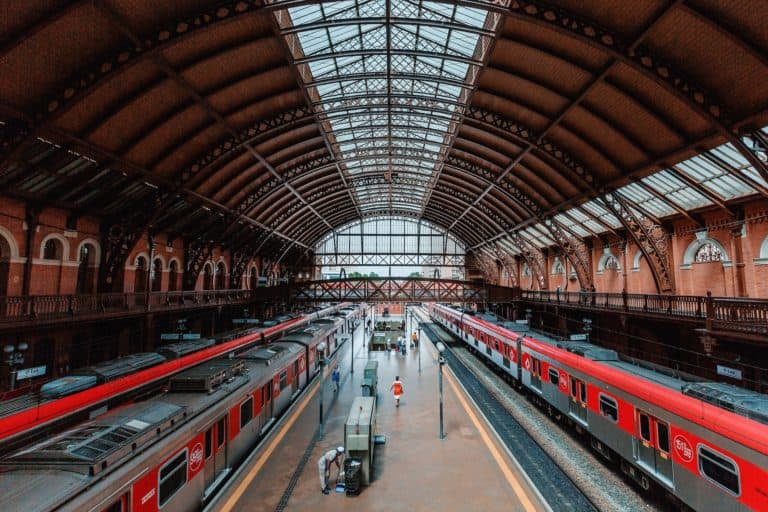
Years ago, when I first started my BIG journey as a digital nomad and embraced the lifestyle, I wasted a lot of time during my dead travel times between countries or cities in Asia. Waiting for buses was another painful experience where if I think back, I could have enjoyed it more with a book or dictionary in my hand.
I was probably too young to pay attention to this time wasted and wasn’t aware of how precious time is and how fast it flies by. I probably wasted hundreds of hours so entire days or maybe weeks? cumulated because I wasn’t prepared well enough to make use of these dead times.
Thinking back, the most painful time wasters were the long-haul flights and unexpected airport delays and the long bus rides through South America.
I’ve learned my lesson hard and in 2016 I promised myself I will try to take advantage of every idle hour (or minute why not 🙂 ) and use it to develop skills or my improve my knowledge overall. Why? Because life is short, beautiful, and shouldn’t be wasted.
As Plato put it beautifully…
THERE IS NOTHING MORE DIVINE THAN EDUCATION. IT IS ONLY THROUGH EDUCATION THAT ONE TRULY BECOMES MAN
PLATO Tweet
It feels fantastic to see how you can grow into your potential and become a better person every day. I believe self-development also makes you understand yourself better which is another reason to use this dead time and build your character.
Whatever the cause, you can still prepare for both expected and unexpected dead time and by doing so, you can suddenly capture that “extra” time in your day that can be used for self-improvement or get something else from your do-to list done.
However, keep in mind that dead time can’t always be used to do other things so don’t be tough on yourself. For example, if you must drive through a country like Brazil or Costa Rica, for sure you can’t be busy actively doing other things while you’re supposed to be in control of a vehicle. What you can do is maybe listen to a podcast or record some (business) ideas and write them down when you reach your destination safely.
Let’s go together through the techniques and tools I use to avoid wasting dead times and learn more about everything.
1. Plan your Trips and Downtime to get personal development in exchange
As general advice, I would say try and anticipate if you will have dead times during your upcoming travel and also think about how you could take advantage of it beforehand. For example, are you going to the airport 3 hours before your flight takes off?
Then make sure you’ve got that book downloaded on your Kindle or Spotify podcasts downloaded on the phone. You might not get internet at the airport or station or it could be expensive, so why not prepare 10 mins before?
Another tip I can give is to keep all the gadgets at hand by organizing your things well in the backpack before you leave and putting them in accessible pockets.
Do you have an airport lounge card? Great! How about checking beforehand if there is one at the airport you are leaving from? This will allow you to transform the dead time into a very comfortable and quiet self-development ritual.
And last but not least, to capture as much of this dead time as possible and put it to use, make sure that you have a list of “self-development” tasks or activities that you plan to do during periods when you schedule your week. You can then can jump straight into them when the opportunity arises.
1. Kindle - A must-have gadget for digital nomads and frequent travelers
Amazon’s Kindle device is probably one of the most amazing gadgets invented in the last 15 years and is a perfect tool for digital nomads who love to read. It can store thousands of books on a single device no thicker than a pencil in robust, well-built hardware that survives even the most careless of users. Kindle is awesome because it’s really easy to use and there is no learning curve and comes with a battery life that can last for weeks. Not to mention is super light and it won’t contribute to the weight of your backpack.
So if you love reading and want to take a lot of books with you (one of the main sources of self-development), Kindle is a must-have device to take with you anywhere you go. I currently store hundreds of books in it and I still buy some from Amazon when I find some which might look worth reading.
2. Audio Books and Podcasts
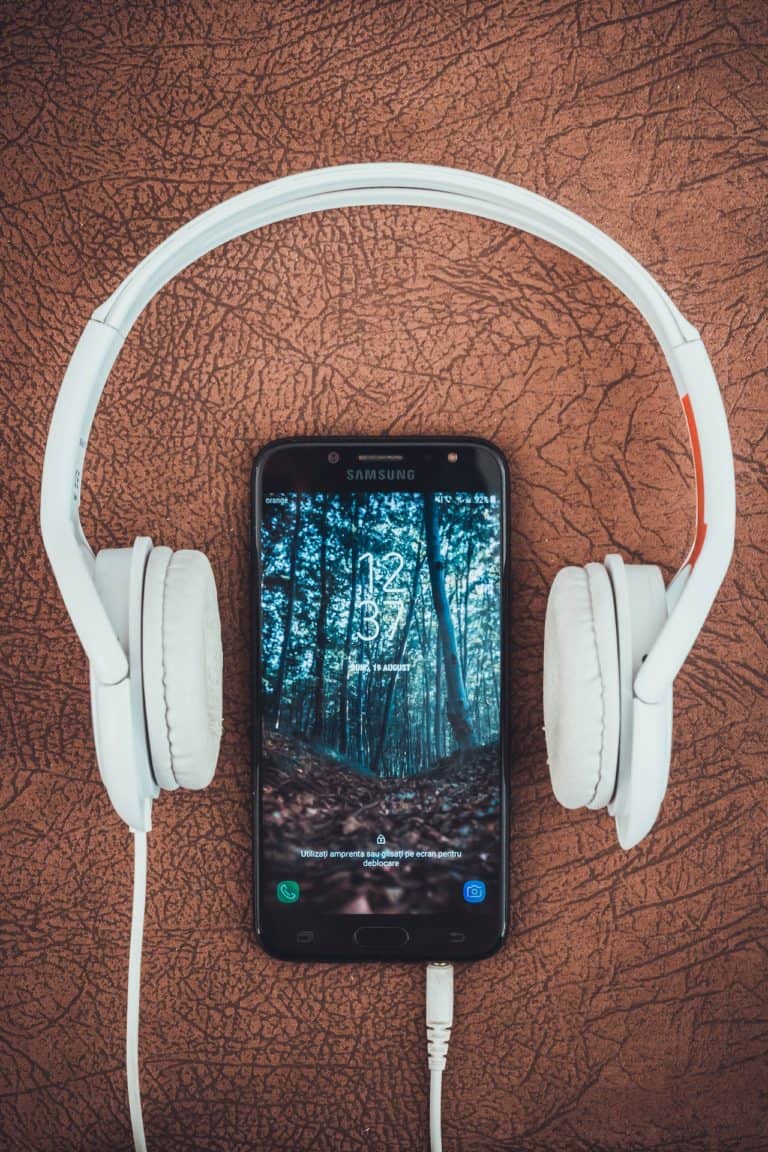
Audio Books and Podcasts are another must-have in the toolkit of a digital nomad. It may be obvious, but they do provide a lot of value and I must add them to the list no matter what. Again, they are very practical because they can be accessed from your smartphone as long as you have a data connection and can even be downloaded for when you take long flights or in areas with poor connection (surfing spots, remote islands, etc).
Some cool apps to listen to podcasts are of course Spotify, Apple Podcasts, and Youtube. If you pay for Youtube Premium, you can download any video there and listen to it whenever you want in the future. These days you can find podcasts about absolutely anything so go ahead and do some research, I’m sure you will
I am personally a big fan of investing and finance podcasts so I’ve put together a list here where you can learn the basics of investing like where and how to invest in stocks, crypto, and so on.
Another great app you can use from your smartphone or tablet is Audible. it’s about $10/month and you can try it for free for 30 days. Most of the books on Amazon already have an audible version and most of them are free with a subscription. Hence there is an entire universe of great books you can listen to if you don’t enjoy reading so much. Just plug in your headphones and learn something new during your travels. It’s really as simple as that
Here's a list of just a few of the books I love and gave me more knowledge
3. Learn a new language
With so many resources, it’s never been easier to learn a second language. You can find apps for your phone that will help you build the foundations of other languages and there is even YouTube filled with free lessons on just about any language imaginable!
No excuse now if you want to practice a new language and expand your horizons – all you need are some basic tools like Duolingo or Babbel which provide instant and fun access to any language imaginable. A lot of these apps have free trials so wait no more!
Studies show that learning a language increases the volume and density of gray matter, the volume of white matter, and brain connectivity. In older language learners, some studies show cognitive benefits beyond languages, such as for working memory. Not to mention that it will help you immerse in the local culture and the locals might open up to you more if you are willing to put the effort in!
4. Pyshical Books are sexy and doable but not practical for a digital nomad
I was always a bookworm and saw every high-rated or classic book as a gateway to knowledge. This is probably because my parents had a huge study room in our home and I got the bug really early on. Anyway, I’m sure there are other digital nomads who love holding hard copy books in their hands, just like me and I fully get that.
However, I do not recommend carrying books with you when traveling a lot. The reason is obvious. They will add almost unnecessary weight to your already-full backpack. Always keep the weight under control as a frequent traveler.
If you still feel like missing the hard copies, stick with a maximum of 2-3 small favorite books that you know you will be re-reading a lot. Otherwise, stick with Kindle, Phone, or Tablet.
5. Meditation / Mindfulness/ Praying - Put your thoughts in order and deal with anxiety
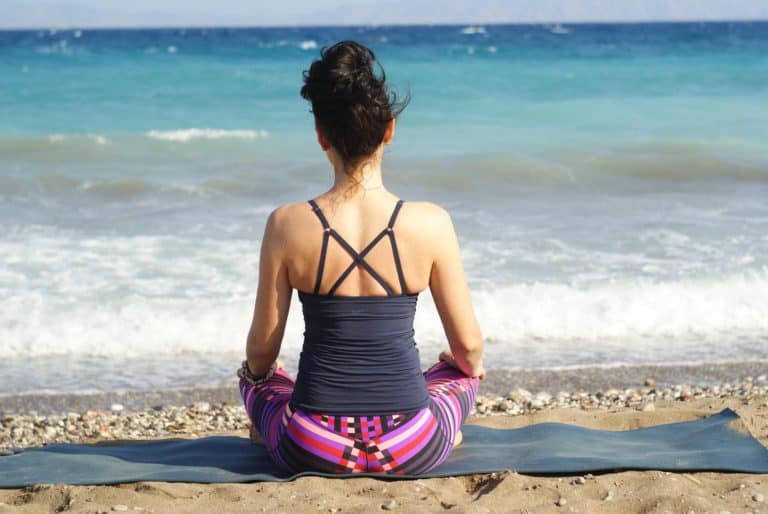
In my opinion, meditation, mindfulness and praying are fantastic tools and techniques for digital nomads and they fit perfect into our lifestyle. According to some studies, the biggest enemy of remote workers and digital nomads is loneliness.
Meditation is a practice in which you focus your mind and clear it of any thoughts. You can meditate for many reasons, such as reducing anxiety or stress levels- but one thing meditation will do for sure? Make you feel calm!
And this is where meditation comes in to clear our heads and remove that anxiety and feeling of loneliness from our minds.
Meditation is more than just breathing or repeating a sound over and again. In fact, it’s been shown that the act of meditation changes your brain structure to make you happier with life
Meditation isn’t just about calming the mind, it’s also a way to strengthen your brain. While you may be sitting still and focusing on breathing or repeating sounds over again in order to maintain mindfulness during meditation sessions- modern diagnostic techniques have shown that there are positive effects internally as well! Brain scans show changes within areas such as reduced inflammation which can help with chronic pain management; Electroencephalography (EEG) reports increased activity level among other benefits when compared against non meditating peers
6. Take notes and don't miss out on creative Thoughts
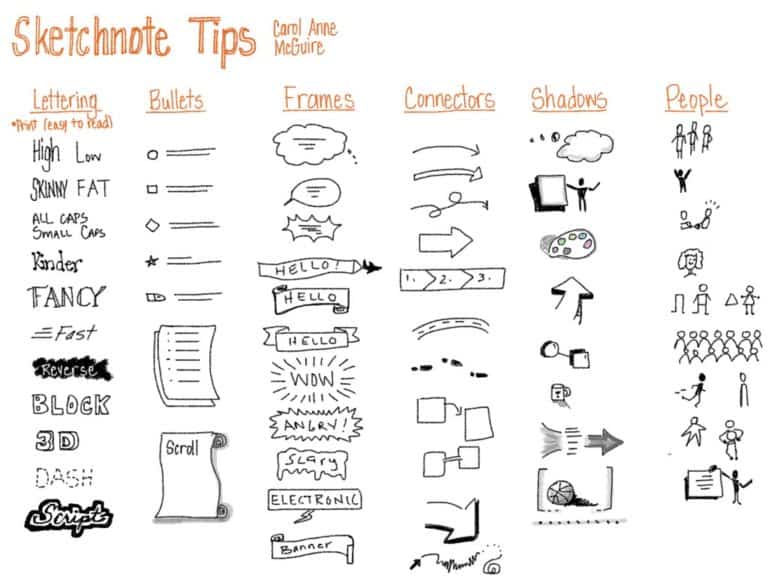
Note-taking can seem boring to some people but it can boost your creativity.
All of us have moments when great ideas (or at least we believe so) strike us and they shouldn’t be let go to waste. Whether that’s a new product you thought about, a new campaign, or simply a new article, you should write them down, visualize them and go back to them. I do this very often
If you are looking for an approach to help you think clearly and more creatively, Visual Note-taking or Sketchnoting will help and I fully recommend it.
Visual Note-taking is a method that combines handwritten notes, symbols, and drawings. You do not have to be talented to do this type of sketching.
Moreover, you do not need expensive gadgets to do that. All you need is a pen and paper notepad or use your pen and tablet if you have one.
Visual Note-taking is a great method to connect (“secret”) dots. Here are some of the benefits of visual note-taking:
- Improved memory retention.
- Active, engaged, and highly stimulated brain.
- A better and more creative critical thinker and problem solver.
- More creative ideas to be connected in different way.
- Notes will become easier to review.
Having said all these, let me recommend to you some materials I found very useful so you explore more about visual note-taking and you can apply the skill right away.
- The Sketchnote handbook (right-hand side) – very useful and easy to learn the basic techniques of taking notes and visualizing
- This youtube channel is absolutely great and has great guides for both beginners and pros.
7. Stay close to family, friends and Your (Extended) network
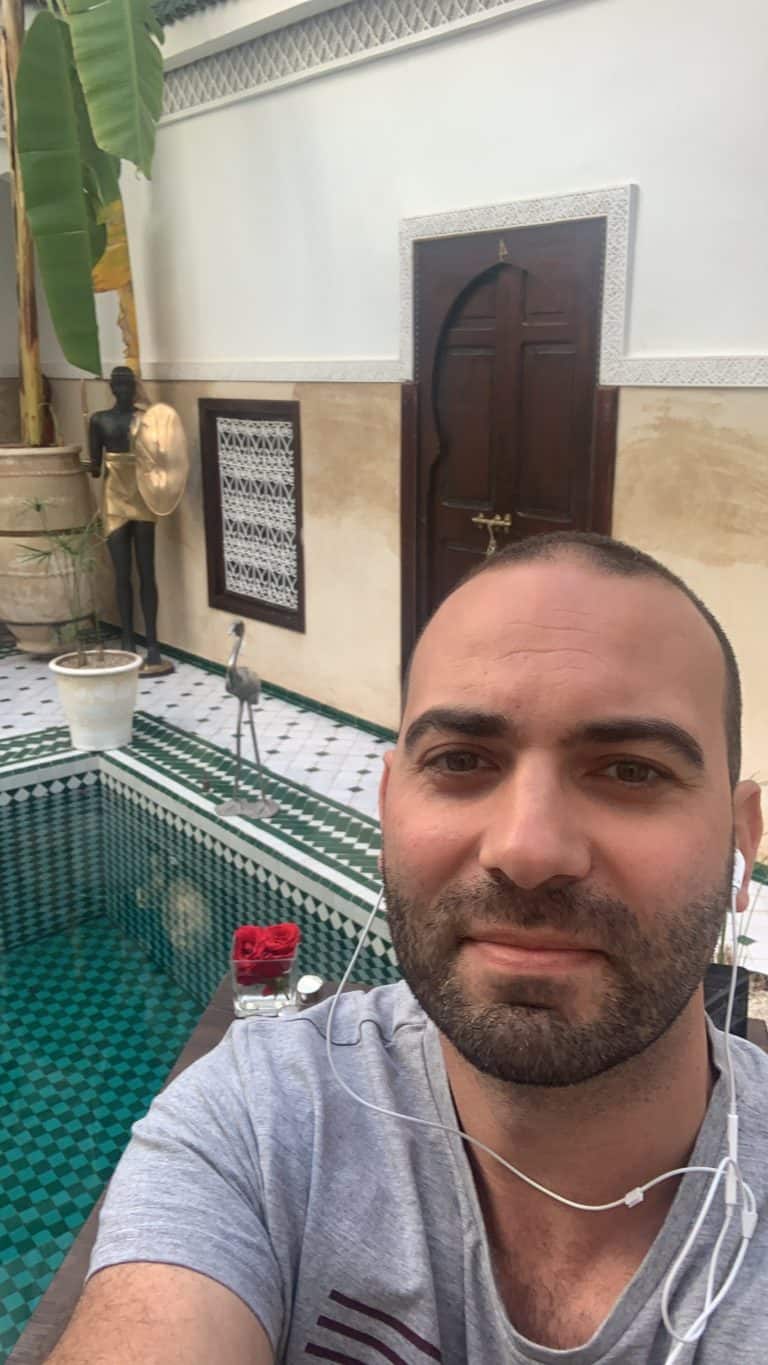
Again, loneliness is the number one enemy of the digital nomad and it’s a true thing. Having experienced it a lot in my journey, I have to emphasize again that you must stay in touch with people and the local networks if you have planted your flags in different places around the world. It’s very good for you mental health and well being so whenever you have some dead time, maybe you want to call your parents, partner, auntie or some close friends and catch up. Life is short, stay in touch with the loved ones.
8. Continue eating healthy...even on the road - Don't slack, there is no need
Eating right when you’re on the road can be a challenge. Moreover, sometimes you might not want to spend money on expensive airport restaurants or plane food and that’s fine. I would even argue that the food in the airports is not even that healthy and choices are limited.
What you’re left with then is either to search for kiosks in the airport or train stations that offer healthy food or you can pack healthy travel snacks to save time during layovers or journeys.
You really don’t have to let bad food choices ruin your health or diet. With a bit of knowledge and some planning, you can stay in shape!
Here are some healthy things I usually look for in airport kiosks or buy from the supermarket before going to the airport. This is based on my own research and years of healthy living:
- Greek yogurt.
- Hummus
- Fruit cups
- Lean protein (steaks, fish, chicken and egg meals)
- Protein Bars
- Beef Jerkey
- Turkey or salmon jerky
- Oatmeal pots with low sugar
- Dries fruits
- Nuts
- Water (avoid sodas!)
- Avoid deep-fried and processed foods
9. Use your time Tracking Apps even in your "out of office" hours
Why not stay disciplined when you are traveling and catch a few hours of productive work via your 5G connection or airport wifi?
I can stay productive on the road (well most of the time) by using productivity apps on my phone and laptop that block distraction and let me focus on my work. Have a look at Chrome extensions like Rescue time or Freedom that block social media distractions and let you focus on your real purpose. To eliminate phone distractions, I would suggest apps like BlockSite and Freedom.
Final words of advice
So, the next time you find yourself with a little extra time on your hands while traveling – whether it’s 10 minutes or an hour – don’t despair! There are plenty of productive and personal development-focused things you can do to make the most of that time. We hope this article has given you some ideas on how to re-invest your dead time and make travel a bit more bearable (and even productive).
Do you have any other great tips for making the most of travel downtime? Let us know in the comments below!
